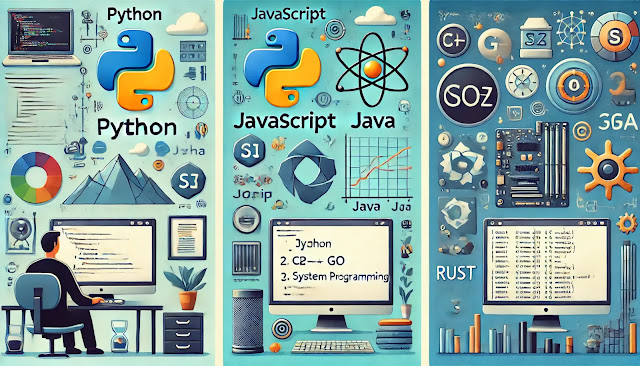As the tech industry rapidly evolves, the demand for versatile and skilled programmers continues to grow. By 2025, several programming languages are expected to dominate the job market, each with unique strengths and applications. Urbancode’s curriculum focuses on equipping students with the most in-demand languages to ensure they are career-ready. Here’s a breakdown of the top 10 programming languages to master at Urbancode.
1. Python
Python remains one of the most versatile and accessible programming languages. Known for its readability and vast libraries, Python is widely used in web development, data science, machine learning, and artificial intelligence.
Why Learn Python?
- Extensive libraries for AI and data science (like TensorFlow, Pandas).
- Beginner-friendly syntax.
- High demand in software development and data analytics.
2. JavaScript
JavaScript is essential for front-end and increasingly for back-end development. It powers interactive web applications and remains indispensable in the tech stack of many companies.
Why Learn JavaScript?
- Core language for web development alongside HTML and CSS.
- Frameworks like React, Angular, and Vue enhance its versatility.
- Widely used for both client and server-side development.
3. Java
Java is known for its portability and reliability. It’s popular in enterprise environments, Android development, and large-scale systems.
Why Learn Java?
- Crucial for Android development.
- Strong object-oriented features.
- Used extensively in enterprise-level applications.
4. SQL
Structured Query Language (SQL) is indispensable for database management. SQL skills are essential for developers and data analysts working with large datasets.
Why Learn SQL?
- Essential for data retrieval and manipulation in relational databases.
- High demand in data-driven roles, including analytics and backend development.
- Used by nearly every organization to manage data.
5. C++
C++ is known for its performance and is frequently used in systems programming, game development, and applications that require speed and efficiency.
Why Learn C++?
- Foundation language for understanding low-level programming.
- Highly used in game development, embedded systems, and performance-critical applications.
- Enhanced understanding of memory management.
6. Go (Golang)
Go, developed by Google, is gaining traction due to its simplicity, performance, and scalability. It’s particularly popular in cloud computing and distributed systems.
Why Learn Go?
- Strong support for concurrent programming, ideal for network and cloud services.
- Simple syntax and fast performance.
- In-demand for backend and cloud services.
7. Swift
Swift is Apple’s language for iOS and macOS development. It’s modern, fast, and continues to grow in popularity as iOS development expands.
Why Learn Swift?
- Required for iOS and macOS application development.
- Improved speed and safety compared to Objective-C.
- High demand in mobile app development.
8. R
R is widely used in data analysis, statistics, and visualization. It’s essential for data science roles, especially where complex statistical analysis is required.
Why Learn R?
- Specialized for data analysis and statistical computing.
- Strong ecosystem for data visualization (ggplot2, Shiny).
- High demand in fields like bioinformatics, finance, and research.
9. Rust
Rust is known for its memory safety and performance, making it ideal for systems programming and applications where reliability is crucial.
Why Learn Rust?
- Prevents memory errors and data races, enhancing code safety.
- Increasingly popular in systems programming and web assembly.
- Supported by Mozilla and used in critical software infrastructures.
10. TypeScript
TypeScript is a superset of JavaScript, offering additional features like static typing, which enhances development efficiency and reduces errors.
Why Learn TypeScript?
- Builds on JavaScript’s popularity with added safety.
- Essential for large-scale web applications.
- Widely adopted in frameworks like Angular and NestJS.
Conclusion:
The tech industry is constantly evolving, and mastering these programming languages by 2025 will open doors to a variety of roles in software development, data science, mobile applications, and beyond. At Urbancode, we ensure that our students are prepared with the most relevant skills and languages to excel in their careers.
For more information on programming courses, visit Urbancode’s curriculum page.






0 Comments